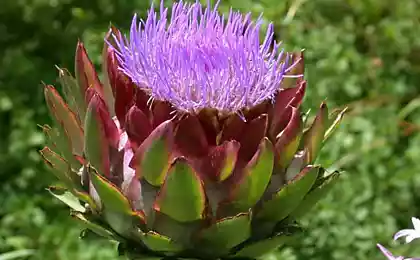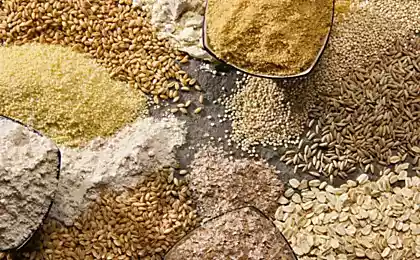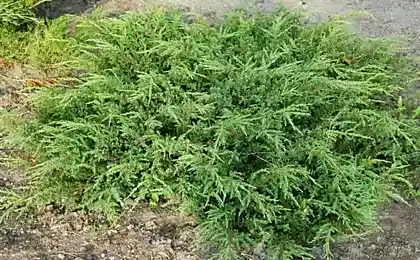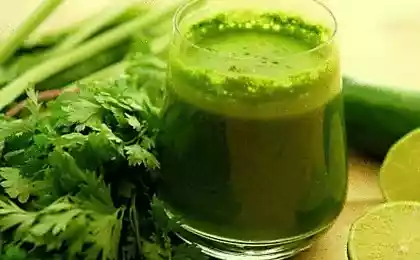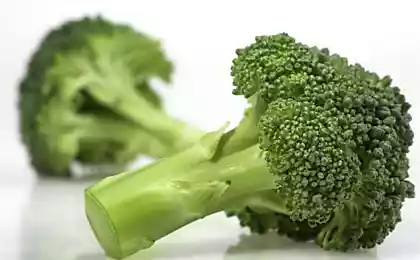625
Artichoke useful properties and contraindications
In recent times it has become very popular to grow in gardens and exotic plants. Artichoke can rightly be called such exotic, but what it represents, what is its benefit?
Except that the artichoke has a delicious taste, the fruit still contains quite a lot of nutrients. This plant, all gardeners will relate to vegetable crops.

What is this culture?
This plant belongs to the Asteraceae family. And, despite the fact that our gardens it has been recently the history of its cultivation goes back far into the past, namely cultivated this culture for over 5 thousand years. Artichokes were grown and eaten in Ancient Egypt, Greece and Rome, now this plant is cultivated everywhere, except perhaps in countries with cold and harsh climate, while some countries are fighting with him like a weed.
Most popular artichoke in France, Italy, Spain, Greece and the United States, in these countries the cultivation of artichokes assigned a fairly large area. This culture valued not only for its taste but also for its nutritional properties. Do eat the buds of this plant. Artichoke can be eaten at several stages of maturation, and only reveal the bumps is not edible. Very small young buds are edible whole, the average – usually used for canning, and the largest and ripe cones can only be used to cut off the tip and bottom, and by removing the core, these fruits are usually stuffed.
The chemical composition of artichoke
The artichoke contains 85% water, 3% protein, 1.5% fat, 5% carbohydrates, 5.5% fiber, and a small percentage of ash. In addition, the fruits are edible discovered vitamins a (beta carotene), B1 (thiamine), B2 (Riboflavin), Niacin (vitamin B3 or vitamin PP), B5 (Pantothenic acid), B6 (pyridoxine), folic acid, vitamins C, E, K, and choline.
Also in the composition of artichoke includes macronutrients: potassium, calcium, magnesium, sodium, phosphorus, and trace elements: iron, manganese, copper, selenium, zinc.
Calorie artichoke – 100 grams have 47ккал.
The beneficial properties of artichoke
As mentioned above, the artichoke is used in cooking. In the middle ages, people have revealed its therapeutic effects on the body. So, in ancient Rome the artichoke was used as a diuretic. Found in the same records using the fruits of the artichoke as a choleretic and Antirheumatic agents.
A little later, doctors noticed that artichoke increases appetite, removes excess fluid from the body and because of this prevents the appearance of edema, relieves jaundice and beneficial effects on liver function. Helps artichoke and with the scurvy, some cardiovascular disease, is useful in atherosclerosis, hepatitis and goiter. The artichoke improves the secretion of the gallbladder.
In our time scientists have found that taking artichoke or preparations of this plant helps to eliminate the body of harmful cholesterol and most toxins. Such properties of the artichoke help to improve liver function, normalize metabolism, reduce the increased acidity. Used drugs of artichoke in the treatment of hypertension, atherosclerosis and other cardiovascular diseases. And in diseases of the liver and biliary tract used a decoction of the leaves or juice.
Due to its diuretic and choleretic action artichoke is opposed to the development of atherosclerosis. Modern science finds all the new features extracted from this plant useful properties in the process of development are proceeds from such diseases as allergies, some forms of psoriasis and eczema.
Contraindications
Unfortunately, like all drugs, funds from the artichoke have a number of contraindications. So do not take the artichoke and its preparations, if you suffer from hypotension and gastritis with low acidity, as well as with individual intolerance of this product.
Source: www.art-pen.ru
Except that the artichoke has a delicious taste, the fruit still contains quite a lot of nutrients. This plant, all gardeners will relate to vegetable crops.

What is this culture?
This plant belongs to the Asteraceae family. And, despite the fact that our gardens it has been recently the history of its cultivation goes back far into the past, namely cultivated this culture for over 5 thousand years. Artichokes were grown and eaten in Ancient Egypt, Greece and Rome, now this plant is cultivated everywhere, except perhaps in countries with cold and harsh climate, while some countries are fighting with him like a weed.
Most popular artichoke in France, Italy, Spain, Greece and the United States, in these countries the cultivation of artichokes assigned a fairly large area. This culture valued not only for its taste but also for its nutritional properties. Do eat the buds of this plant. Artichoke can be eaten at several stages of maturation, and only reveal the bumps is not edible. Very small young buds are edible whole, the average – usually used for canning, and the largest and ripe cones can only be used to cut off the tip and bottom, and by removing the core, these fruits are usually stuffed.
The chemical composition of artichoke
The artichoke contains 85% water, 3% protein, 1.5% fat, 5% carbohydrates, 5.5% fiber, and a small percentage of ash. In addition, the fruits are edible discovered vitamins a (beta carotene), B1 (thiamine), B2 (Riboflavin), Niacin (vitamin B3 or vitamin PP), B5 (Pantothenic acid), B6 (pyridoxine), folic acid, vitamins C, E, K, and choline.
Also in the composition of artichoke includes macronutrients: potassium, calcium, magnesium, sodium, phosphorus, and trace elements: iron, manganese, copper, selenium, zinc.
Calorie artichoke – 100 grams have 47ккал.
The beneficial properties of artichoke
As mentioned above, the artichoke is used in cooking. In the middle ages, people have revealed its therapeutic effects on the body. So, in ancient Rome the artichoke was used as a diuretic. Found in the same records using the fruits of the artichoke as a choleretic and Antirheumatic agents.
A little later, doctors noticed that artichoke increases appetite, removes excess fluid from the body and because of this prevents the appearance of edema, relieves jaundice and beneficial effects on liver function. Helps artichoke and with the scurvy, some cardiovascular disease, is useful in atherosclerosis, hepatitis and goiter. The artichoke improves the secretion of the gallbladder.
In our time scientists have found that taking artichoke or preparations of this plant helps to eliminate the body of harmful cholesterol and most toxins. Such properties of the artichoke help to improve liver function, normalize metabolism, reduce the increased acidity. Used drugs of artichoke in the treatment of hypertension, atherosclerosis and other cardiovascular diseases. And in diseases of the liver and biliary tract used a decoction of the leaves or juice.
Due to its diuretic and choleretic action artichoke is opposed to the development of atherosclerosis. Modern science finds all the new features extracted from this plant useful properties in the process of development are proceeds from such diseases as allergies, some forms of psoriasis and eczema.
Contraindications
Unfortunately, like all drugs, funds from the artichoke have a number of contraindications. So do not take the artichoke and its preparations, if you suffer from hypotension and gastritis with low acidity, as well as with individual intolerance of this product.
Source: www.art-pen.ru
